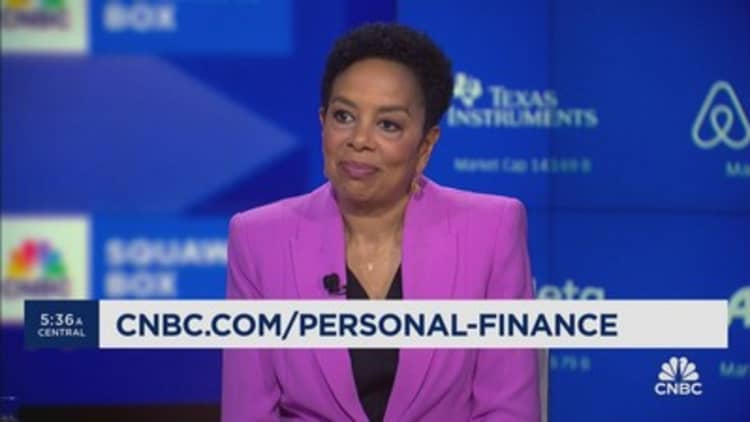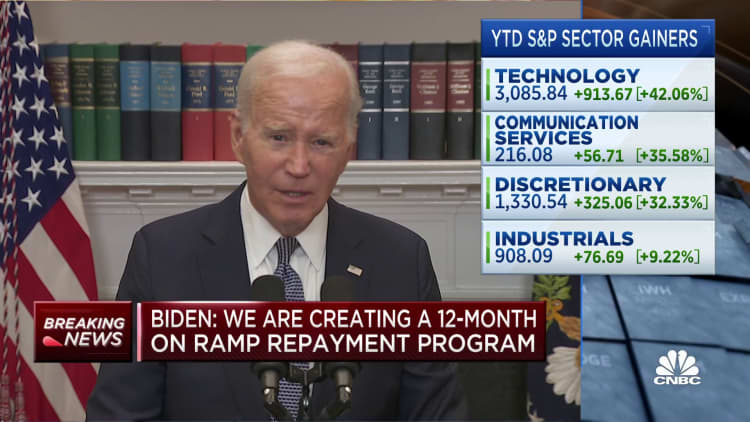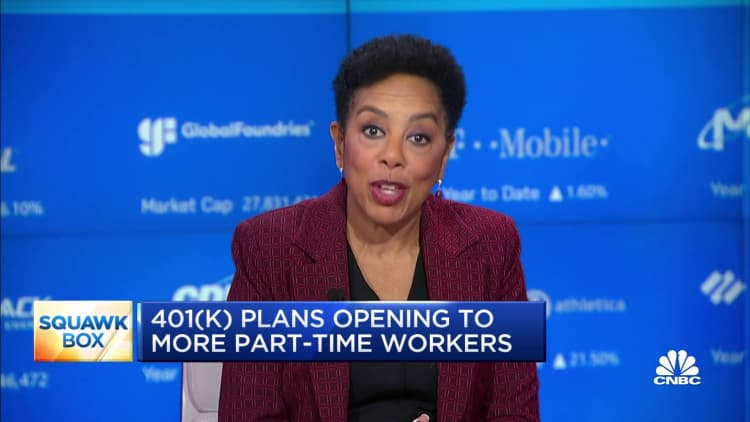Taking an affordable vacation is easy, accountant Krystal Todd suggests in her TikTok videos: Schedule some meetings, call it a business trip and deduct it from your taxes.
Personal Finance
Bad tax advice is multiplying on TikTok
Published
1 month agoon

But offline, she says viewers might need more information than the tax tips in her videos.
“I’m a CPA, but I’m not your CPA,” she said of her social media content. “It’s financial education, not financial advice.”
As the April 15 filing deadline approaches, aggressive tax advice is booming online, especially on the popular video sharing app TikTok. The Internal Revenue Service, though, says a lot of the advice is dubious, exposing unwitting taxpayers to potential fines if they try to carry it out. Bad tax advice has been a problem for generations, but it spreads far more easily on social media than it did in the pre-internet days.
The tips that pop up on TikTok and on Instagram and Facebook, both owned by Meta, make splashy claims that promise big returns. One influencer, Karlton Dennis, says to buy short-term rental properties that lose money on paper, and use that to offset income from your full-time job. Another, Candy Valentino, tells followers to hire their children as employees and deduct some of their housing costs as a business expense — and if their accountant warns that could cause an audit, their accountant is wrong. Still others tell hundreds of thousands of followers to buy 6,000-pound vehicles, then write off the sticker price, maintenance and fuel.
Some creators’ videos go much further, urging people not to pay taxes at all: “Taxes are a scam.” “There’s no law to pay taxes.” “Paying taxes is voluntary.” All of those claims are false.
A TikTok spokesperson said the company removes what it deems to be scams or fraud from its platform, and promotes “best practices” when engaging with online financial content. The site prohibits content that involves the “coordination, facilitation, or instructions on how to carry out scams.” And TikTok’s financial decisions guide tells users to seek “credible sources to cross-check financial guidance.”
Meta declined a request to comment.
In reality, taxpayers can’t deduct salaries they pay their children unless the children truly are gainfully employed, and they can’t deduct the full cost of a fancy new vehicle unless the car is used to run a business, not for personal use. Deducting business trips from your taxes can be legal — but it’s more complicated than just scheduling a meeting during your vacation, and experts suggest keeping business transactions and personal transactions separate to avoid red flags for audits.
And taxes are legal — and not at all voluntary.
“This is not a new phenomenon in any way. The challenge is, on the social media platforms, that the availability of these messages is so much broader,” one recent former top IRS official said. The person spoke on the condition of anonymity to discuss nonpublic agency policy. “Twenty or 30 years ago, this was something your brother-in-law handed around in a shady pamphlet on the weekends.”
Congress and the Biden administration are already concerned about TikTok for other reasons: Worries over Chinese access to the app’s user data led the House in March to vote to force its parent company ByteDance to sell the site to U.S. owners, lest it face a nationwide ban. The Senate is considering the measure. (Tax misinformation spreads on U.S.-based apps, too.)
Many of the influencers posting tax tip videos post a range of advice, much of which is sounder and less aggressive than the most eye-catching videos about big deductions. Several of them made clear in interviews that they do understand the nuances of tax law. The videos serve mostly to draw attention to their content — and to help promote the idea that their financial advice, in general, will lead to riches. Many refer viewers to other products — including stock tips, books and online courses — after offering questionable tax tips.
“I bought a $70,000 truck late last year to save more than $21,000 on my taxes,” Mike Poarch said in a video promoting what he calls a “tax hack.” The purchase, he said, “now allows me to write off all of my gas, which is about $70 a week, plus my insurance, which is like $350 a month, plus all of the maintenance and all of the upgrades.”
In an interview, Poarch acknowledged that only business use of the vehicle is deductible, not personal use: “Sometimes these videos make it appear a little more rosy than it may actually be, but that’s to help with virality.”
Todd said she thinks of her TikTok videos as educational tools, especially for young women of color like her. She explains in her videos how someone should fill out tax forms when starting a new job, for example. She said she tries to give people a more positive and nuanced outlook by talking about reasons it might be good not to get a refund, and how taxes shape society in beneficial ways. Like many TikTokers, Todd said she believes the advice she gives her in-person, paying clients as a certified professional accountant is held to a higher standard for accuracy than the advice she gives online.
Intuit in a statement said its collaboration with Todd was part of the company’s “efforts to provide career opportunities for bookkeepers, and is not an endorsement of other content.” It urged consumers to “be mindful of tax and financial advice on social media.” Representatives for TaxSlayer did not respond to requests for comment.
Todd removed videos promoting TaxSlayer products and links to TaxSlayer discounts from her social media pages and personal website after an interview and after The Washington Post asked TaxSlayer about her affiliation with the company.
Frequently, influencers said their videos were deliberately flattening important context around tax law.
In one recent clip, Will Myers, who makes videos for his 421,700 TikTok followers and 173,000 Instagram followers under the name Money Man Myers, said he helped one client swing their tax return from owing the IRS more than $146,000 to getting a $16,000 refund, using strategies such as hiring the client’s children for their business.
When a reporter asked — really? — Myers conceded, “They have to do real work. The job has to match their age. You can’t say your 4-year-old is driving.” And he showed his detailed knowledge of tax law, even citing the case number of a tax court decision on the question of hiring a child.
Dennis did not respond to requests to comment on his videos, and Valentino said she would only participate in an interview if The Post paid her for her time, which is against standard journalistic ethics.
Thomas Fattorusso Jr., the special agent in charge of the IRS’s criminal investigations division for New York, said his department is aware of social media trends — he mentioned the common videos about hiring children and buying trucks, specifically, in an interview, but declined to discuss individual investigations.
He noted that social media influencers might not be directly profiting from an incorrect tax return generated by a person who listens to their online tips in the way that a tax preparer who lies on a client’s tax return directly profits. Influencers aren’t charging clients to submit returns based on their bad advice. But many do make money on their videos, whether directly on the social media platform or by using the platform to sell a product like a course on financial strategies.
Even though the influencers aren’t acting as the tax preparer or adviser for followers on social media, advice that they give could in theory make them a “promoter” in the eyes of the IRS. Fattorusso described a “promoter” as someone who knowingly disseminates a tax fraud scheme, which means they could come under criminal investigation, he said: “You are promoting this. There’s a willful intent to what you’re doing in telling people they can do this when you know they can’t and it’s illegal.”
Fattorusso’s office pointed to other tax promoter cases as examples, though none of those defendants’ activities were solely on social media.
Making a case against an influencer just because of bad tax advice in videos would be immensely difficult, said Nina Olson, who served as the National Taxpayer Advocate, the IRS’s internal watchdog, from 2001 to 2019. In that role, she campaigned for Congress to expand the IRS’s authority to regulate tax preparers and others who offer tax advice.
IRS investigators would have to identify a similar problem on a large number of tax returns, audit those taxpayers and trace the deficiencies of the tax filings to the same online influencer.
“You can’t stop people from saying stupid things,” Olson said. “It’s when they’re monetizing stupid things and you can make a tie to someone else’s act, relying on what they said.”
And some TikTok tax tippers have begun hedging their language to avoid legal pitfalls, said Caroline Bruckner, who studies tax administration and financial literacy at American University’s Kogod Tax Policy Center. Adding phrases like “Take a look at” or “In my opinion” ahead of sharing questionable tax advice could insulate content creators from legal consequences, she said.
Maryland accountant Nick Krop, 30, has been making videos since 2021 in which he frequently shows a snippet of another social media creator’s tax advice, then says why it’s wrong. Reacting to a video that advised putting assets into a trust to avoid taxes, Krop marveled, “It’s not true, a work of fiction, a complete fabrication. … A trust is not a magical entity that will shield you from taxes.” On a video that claimed whole life insurance could be used to avoid taxes, Krop commented, “Good rule of thumb: if it was that easy to reduce your taxable income to nothing, everyone would be doing that.”
He said even some of his own clients who work from home have asked if they can write off new cars — which seems inherently dubious.
Krop, like every TikTok creator interviewed for this story, said he doesn’t think the government should police what anyone says on social media about taxes. But he does think TikTok should put its thumb on the scale to make sure users see correct tax advice more often than incorrect: “It would be nice if TikTok would elevate those people who are trying to correct the record.”
You may like
Personal Finance
Here are key things to know about company stock, experts say
Published
2 weeks agoon
May 4, 2024
Prasit photo | Moment | Getty Images
As employers compete to attract and retain talent, equity compensation — or an ownership stake in the company — has become a key workplace benefit.
Some 72% of companies offer some form of equity compensation to certain employees, a 2023 survey from Morgan Stanley found. That’s up from 65% in 2021.
These perks motivate employees and boost their long-term investing goals, according to the Morgan Stanley survey, which polled 1,000 U.S. employees and 600 human resource executives.
However, some “miss the opportunity” because they don’t understand it, said certified financial planner Chelsea Ransom-Cooper, chief financial planning officer for Zenith Wealth Partners in New York.
More from Personal Finance:
This job perk is like a ‘cash bonus’ — but you need a long-term strategy, experts say
Employee stock purchase plans offer ‘free money’ — but also carry complexity and risk
Treasury Department announces new Series I bond rate of 4.28% for the next six months
Here’s what to know about three popular types of stock-based compensation, experts say.
There’s potential for ‘life-changing wealth’
Many employees receive so-called stock options as part of their compensation, which are the right to buy or “exercise” company shares at a preset price within a specific timeframe.
“It’s almost iconic to grant stock options in a startup private company,” said Bruce Brumberg, editor-in-chief and co-founder of myStockOptions.com, which covers various types of equity compensation.
Startups want to create the drive and incentive of ownership culture with the potential for “life-changing wealth,” he said.
Stock options become valuable when there’s a discount between your preset price and the market value, which makes it more attractive to exercise. However, the taxes can be complicated, depending on the type of stock options.
Incentive stock options can offer some tax benefits — if you meet certain rules — but could trigger the alternative minimum tax, a parallel system for higher earners.
Photo by LanaStock via Getty Images
By comparison, the more common nonqualified stock options generally have less favorable tax treatment and you’ll owe regular income taxes on the discount upon exercise.
But even with an initial discount, there’s no guarantee a company’s stock price won’t decrease after exercising a stock option.
“It could be worth nothing but a piece of paper,” Ransom-Cooper from Zenith Wealth Partners said.
Restricted stock units are ‘like a cash bonus’
Another benefit, restricted stock units, or RSUs, are company shares granted upon hiring, which vest over time. RSUs can also be tied to performance-based goals.
Some 94% of public companies offer RSUs to at least middle managers, according to a 2021 survey from the National Association of Stock Plan Professionals.
“I like to think of it like a cash bonus,” said Pittsburgh-based CFP Matthew Garasic, founder of Unrivaled Wealth Management.
I like to think of it like a cash bonus.
Matthew Garasic
Founder of Unrivaled Wealth Management
For example, if the stock price is $10 and 100 shares vest, it’s treated like $1,000 in compensation for that year, and the standard withholding of 22% might not be enough, depending on your tax bracket, he explained.
After vesting, the decision to sell or hold RSUs depends on your short- and long-term investing goals.
“We like to establish a target of what they like to hold in company stock,” said Garasic, who aims to keep allocations of a single stock to 10% or less. “Once we get above that target, we just sell at vest.”
Employee stock purchase plans offer ‘free money’
Many publicly traded companies may also offer discounted company shares via an employee stock purchase plan, or ESPP.
“There’s free money to be had” with an ESPP, Garasic explained.
However, the decision to participate typically depends on your short-term financial goals.
After enrolling, your ESPP collects a portion of after-tax money from each paycheck and uses the funds to buy discounted company stock on a specific date.
The gold standard is a 15% discount with a lookback feature, which bases the stock purchase price on the value at the beginning or end of the offering period, whichever is lower, experts say.
Any time you’re investing in a single company, there’s certainly a big risk.
Kristin McKenna
President of Darrow Wealth Management
You can typically sell after a set period, but there’s no guarantee you’ll make money, even with the built-in discount.
“Any time you’re investing in a single company, there’s certainly a big risk,” CFP Kristin McKenna, president of Darrow Wealth Management in Boston, previously told CNBC.
Yearly goals like investing up to your employer’s 401(k) match should come before your ESPP, especially with limited income, she added.

Personal Finance
Public Service Loan Forgiveness program will go on partial pause
Published
2 weeks agoon
May 3, 2024
Teacher teaching her students in art class at school.
Fg Trade | E+ | Getty Images
The popular Public Service Loan Forgiveness program began a partial processing pause on May 1, which will likely run through July, the U.S. Department of Education recently said.
The temporary suspension comes as the Biden administration overhauls the once-troubled federal student loan program.
Here’s what borrowers should know.
Why the pause is happening
The PSLF program, signed into law by President George W. Bush in 2007, allows certain not-for-profit and government employees to have their federal student loans canceled after 10 years of on-time payments.
However, the program has been plagued by problems, making people who actually get the relief a rarity.
Borrowers often believe they’re paying their way to loan cancellation only to discover at some point in the process that they don’t qualify, usually for confusing technical reasons. Lenders have been blamed for misleading borrowers and botching their timelines.
More from Personal Finance:
Advice about 401(k) rollovers is poised for a big change. Here’s why
IRS free filing pilot processed more than 140,000 returns, commissioner says
Here’s why new home sales inch higher despite 7% mortgage rates
The Biden administration has been trying to reform the program. As part of that overhaul, it is changing how loan servicing works for public servants, and some of the customer service will soon be handled by the government itself.
“After the improvements, PSLF borrowers will have all of their PSLF information centralized on StudentAid.gov so that the Department can provide real-time and more accurate information on payment counts and form processing,” the Education Department wrote in a recent blog post.
Previously, only one company managed the servicing for PSLF borrowers on behalf of the government: first, FedLoan, and more recently, Mohela, or the Missouri Higher Education Loan Authority. Going forward, a number of different companies will service the accounts, along with the Education Department.
What borrowers can expect during the transition
The Education Department will not review PSLF form submissions for roughly a two-month period, it says. (The exact dates will depend on how long the changes take place to complete.)
Meanwhile, from May 1 through July, it says, “borrowers will not be able to see their PSLF payment counts on MOHELA’s website.”
“During the transition, PSLF forgiveness will be suspended,” said higher education expert Mark Kantrowitz.

Borrowers will be able to continue making their loan payments, and these months will count on their timeline to loan forgiveness. Borrowers should also be able to submit a form to certify public service employment and to apply for loan forgiveness if they are at the 10-year mark.
“Forms will be reviewed as soon as the transition is complete,” the Education Department says.
If you qualify for debt cancellation during the transition, you can request a forbearance from your servicer in the meantime, it says, adding that any overpayments should be refunded.
Don’t miss these exclusives from CNBC PRO
Personal Finance
Your Roth 401(k) after-tax matching contribution could trigger taxes
Published
2 weeks agoon
May 3, 2024
If you’ve opted into your employer’s Roth 401(k) after-tax matching contributions this year, it could trigger a tax surprise without proper planning, experts say.
Enacted in 2022, Secure 2.0 ushered in sweeping changes for retirement savers, including the option for employers to offer 401(k) matches in Roth accounts. These accounts are after-tax, meaning employees pay upfront taxes but growth and withdrawals in retirement are tax-free. Previously Roth 401(k) matches went into pretax accounts.
Roughly 12% of employers with 401(k) plans said they are “definitely” adding the feature and 37% are “still considering it,” according to a recent survey from the Plan Sponsor Council of America.
However, those new matching Roth contributions could have “unintended consequences” at tax time, according to Tommy Lucas, a certified financial planner and enrolled agent at Moisand Fitzgerald Tamayo in Orlando, Florida.
More from Personal Finance:
IRS aims to more than double its audit rate on wealthiest taxpayers
Here are three ways to lower your credit card annual percentage rate, experts say
Why your financial advisor may not give you the best Social Security advice
“If you go this route, you’ll want to know that you’re basically getting extra income” and taxes aren’t automatically withheld, Lucas said.
“You’re increasing your adjusted gross income by taking this match as a Roth,” he said.
“If you go this route, you’ll want to know that you’re basically getting extra income.”
Tommy Lucas
Financial advisor at Moisand Fitzgerald Tamayo
For example, let’s say your salary is $100,000 with a 6% employer match in 2024. If you designate your $6,000 employer match as Roth and you’re in the 22% federal income tax bracket, you could have an extra $1,320 in tax liability, according to Lucas.
“There’s probably something on top of that for state income taxes,” depending on where you live, he said.
Plus, you won’t see your employer’s matching Roth contribution reported on Form W-2, according to IRS guidance released late last year. Instead, you’ll receive Form 1099-R, which could be confusing, Lucas said.
How to plan for income from Roth 401(k) matches
If you’ve chosen your company’s Roth matches for 2024, you need to prepare for the extra income, said CFP Jim Guarino, managing director at Baker Newman Noyes in Woburn, Massachusetts. He is also a certified public accountant.
You can increase your federal and state withholdings with your employer or boost your quarterly estimated tax payments, he said.

For example, if you expect to incur $1,320 more in federal taxes, you could divide that amount by your remaining 2024 paychecks and include that “extra withholding” on Form W-4 for your employer, Lucas said.
Of course, you’ll need to double-check that the change is reflected on future paychecks, he said.
“In either case, working with a trusted tax advisor would help to optimize overall tax planning and eventual tax reporting for the year,” Guarino added.
Don’t miss these exclusives from CNBC PRO

Betting on the Kentucky Derby? Here’s how to think like a professional handicapper.

Warren Buffett says Greg Abel will make Berkshire Hathaway investing decisions when he’s gone

EV makers win 2-year extension to qualify for tax credits

Are American progressives making themselves sad?

‘Best Firms for Tech’ 2024 deadline extended to April 10

